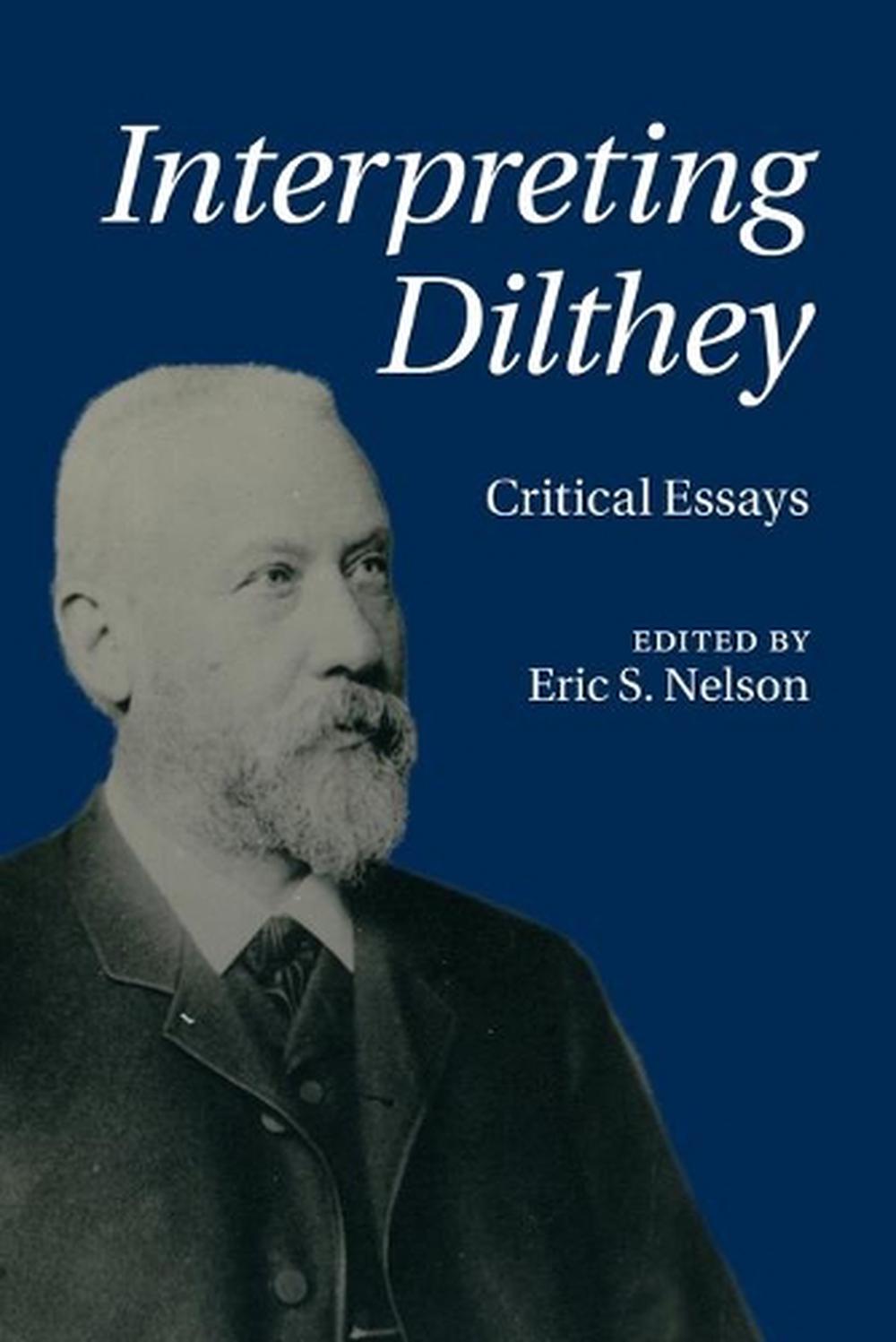
When you click on links to various merchants on this site and make a purchase, this can result in this site earning a commission. Affiliate programs and affiliations include, but are not limited to, the eBay Partner Network.
Interpreting Dilthey: Critical Essays by Eric S. Nelson (English) Paperback Book

- Item No : 157006923930
- Condition : Brand New
- Brand : No brand Info
- Seller : the_nile
- Current Bid : US $47.26
-
* Item Description
-
The Nile on eBay

Interpreting Dilthey
by Eric S. Nelson
This volume shows how Dilthey's philosophical concepts can be understood in relation to their historical situation. It explores how they remain relevant to current philosophical issues concerning art, literature, the biographical and autobiographical self, knowledge, language, science, psychology, the embodied mind, culture, history, and society.
FORMAT
PaperbackLANGUAGE
EnglishCONDITION
Brand New
Publisher Description
In this wide-ranging and authoritative volume, leading scholars engage with the philosophy and writings of Wilhelm Dilthey, a key figure in nineteenth-century thought. Their chapters cover his innovative philosophical strategies and explore how they can be understood in relation to their historical situation, as well as presenting incisive interpretations of Dilthey's arguments, including their development, their content, and their influence on later thought. A key focus is on how Dilthey's work remains relevant to current debates around art and literature, the biographical and autobiographical self, knowledge, language, science, culture, history, society, and psychology and the embodied mind. The volume will be important for researchers in hermeneutics, aesthetics, practical philosophy, and the history of German philosophy, providing a valuable introduction to Dilthey's work as well as detailed critical analysis of its ongoing significance.
Table of Contents
Introduction: Wilhelm Dilthey in context Eric S. Nelson; Part I. Life, Hermeneutics, and Science: 1. Dilthey's conception of purposiveness: its Kantian basis and hermeneutical function Rudolf A. Makkreel; 2. Leben erfaßt hier Leben: Dilthey as a philosopher of (the) life (sciences) Jos de Mul; 3. Dilthey's importance for hermeneutics Michael N. Forster; 4. Hermeneutics and historicity: Dilthey's critique of historical reason Charles Bambach; 5. Dilthey's defense of historicism Frederick C. Beiser; 6. More than one 'kind' of science? Implications of Dilthey's hermeneutics for science studies Robert C. Scharff; Part II. Practical Philosophy, Aesthetics, and Interpretation: 7. Dilthey and empathy Shaun Gallagher; 8. Dilthey's ethical theory Benjamin Crowe; 9. Dilthey's dream and the struggle of world-views Nicolas de Warren; 10. A task most pressing: Dilthey's philosophy of the novel and his rewriting of modern aesthetics Kristin Gjesdal; 11. Experience and metaphysics: the anti-Hegelian aesthetics of Dilthey and Santayana Paul Guyer; 12. Dilthey and Wittgenstein: understanding understanding Lee Braver; 13. Dilthey's hermeneutics and philosophical hermeneutics Jean Grondin.
Promotional
Examines Dilthey's hermeneutics, aesthetics, practical philosophy, and philosophy of history, showing how his work remains relevant for philosophers today.
Promotional "Headline"
Examines Dilthey's hermeneutics, aesthetics, practical philosophy, and philosophy of history, showing how his work remains relevant for philosophers today.
Description for Bookstore
This volume shows how Dilthey's philosophical concepts can be understood in relation to their historical situation. It explores how they remain relevant to current philosophical issues concerning art, literature, the biographical and autobiographical self, knowledge, language, science, psychology, the embodied mind, culture, history, and society.
Description for Library
This volume shows how Dilthey's philosophical concepts can be understood in relation to their historical situation. It explores how they remain relevant to current philosophical issues concerning art, literature, the biographical and autobiographical self, knowledge, language, science, psychology, the embodied mind, culture, history, and society.
Details
ISBN1107589665Pages 297Publisher Cambridge University PressYear 2021ISBN-10 1107589665ISBN-13 9781107589667Publication Date 2021-04-08Short Title Interpreting DiltheyLanguage EnglishFormat PaperbackSubtitle Critical EssaysDEWEY 193UK Release Date 2021-04-08Imprint Cambridge University PressPlace of Publication CambridgeCountry of Publication United KingdomAU Release Date 2021-04-08NZ Release Date 2021-04-08Edited by Eric S. NelsonAuthor Eric S. NelsonAlternative 9781107132993Audience Professional & Vocational


-
- NO GRID Survival Projects
- $ 37.00
















